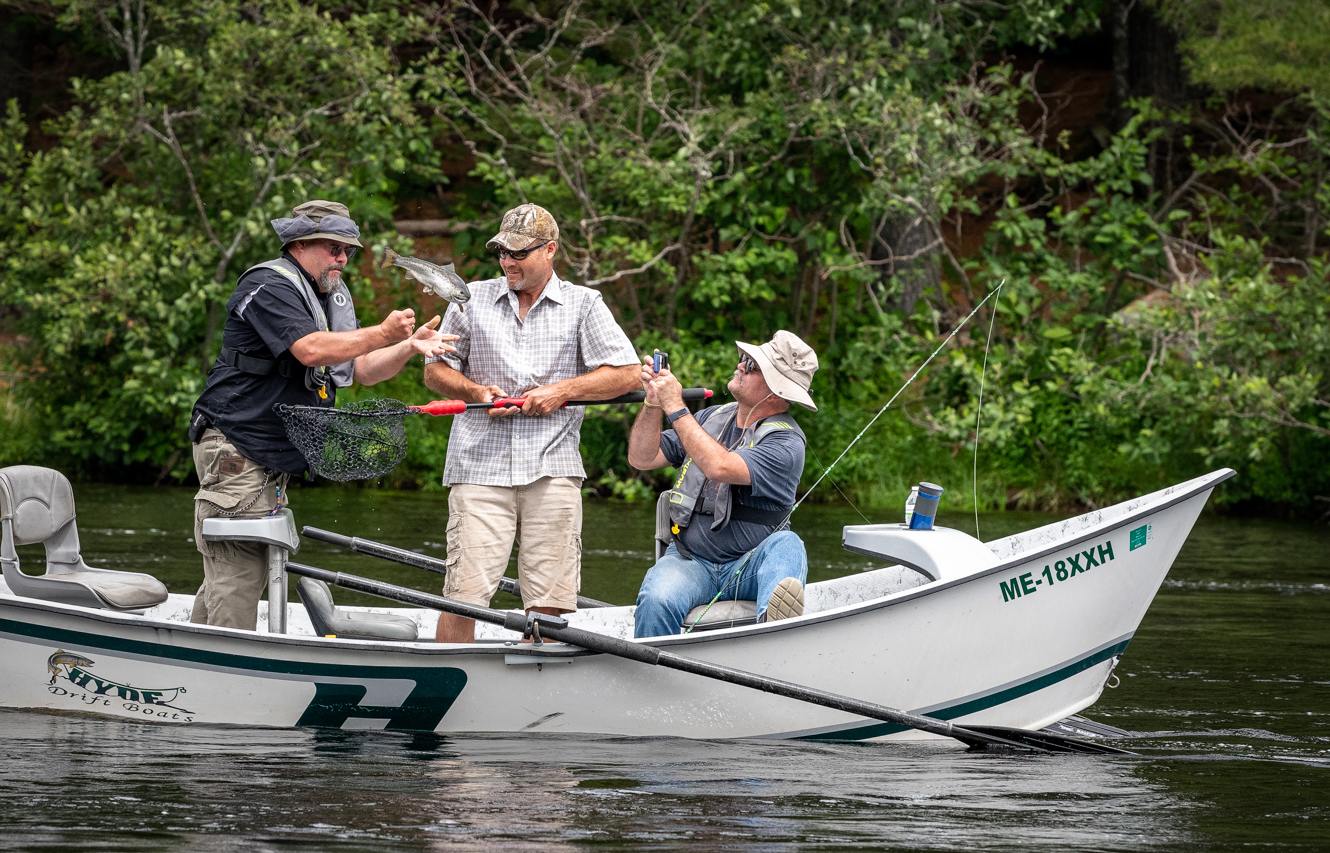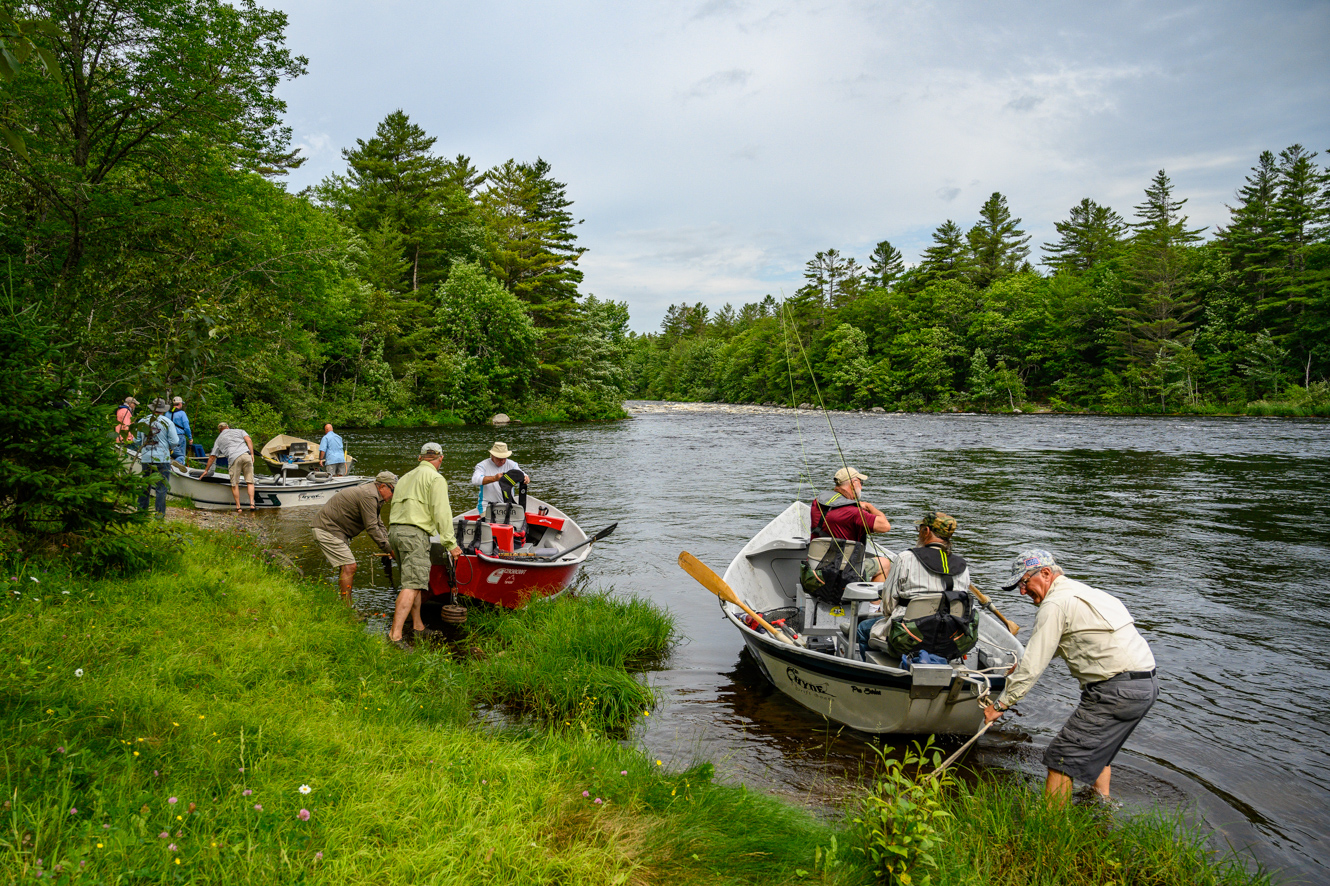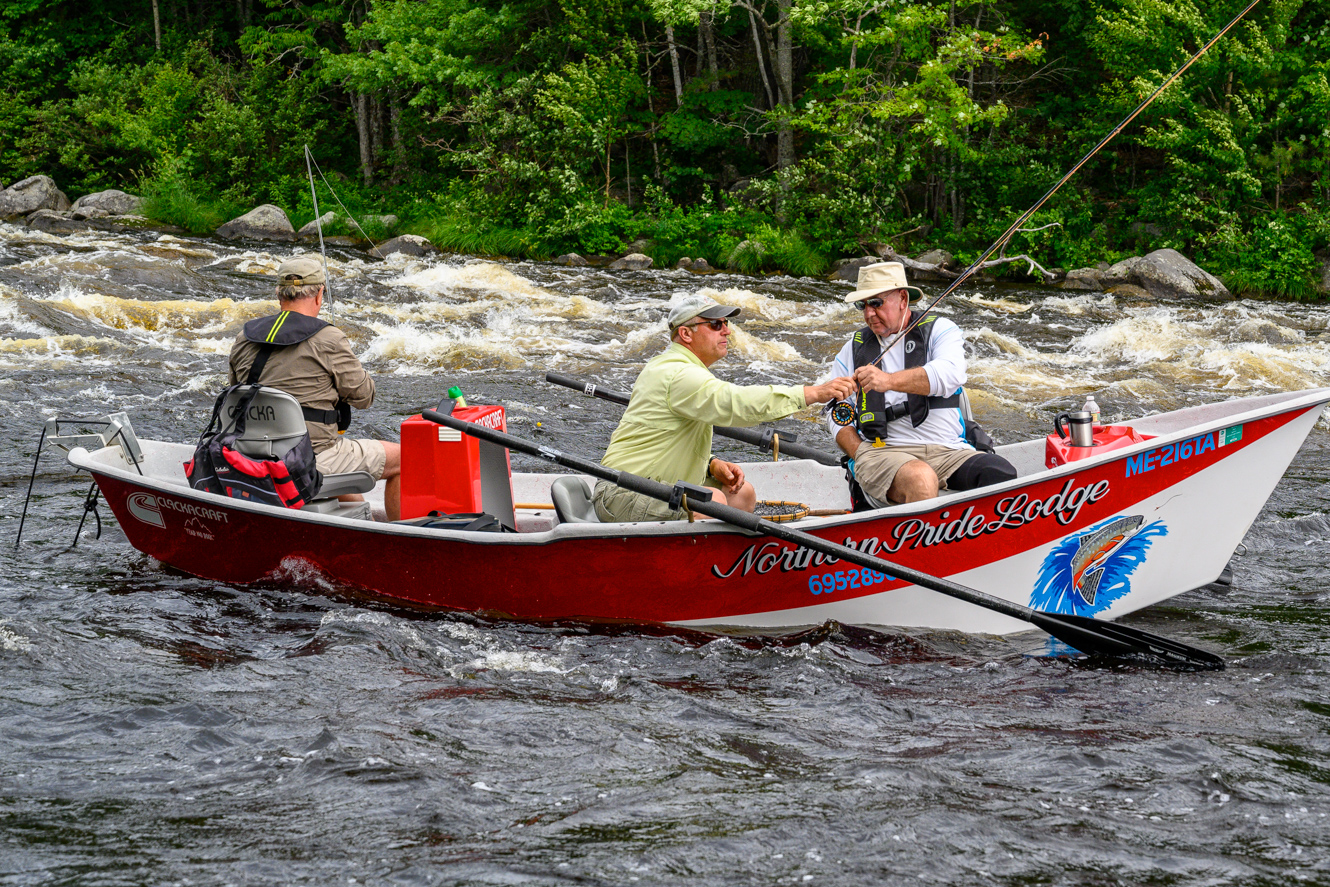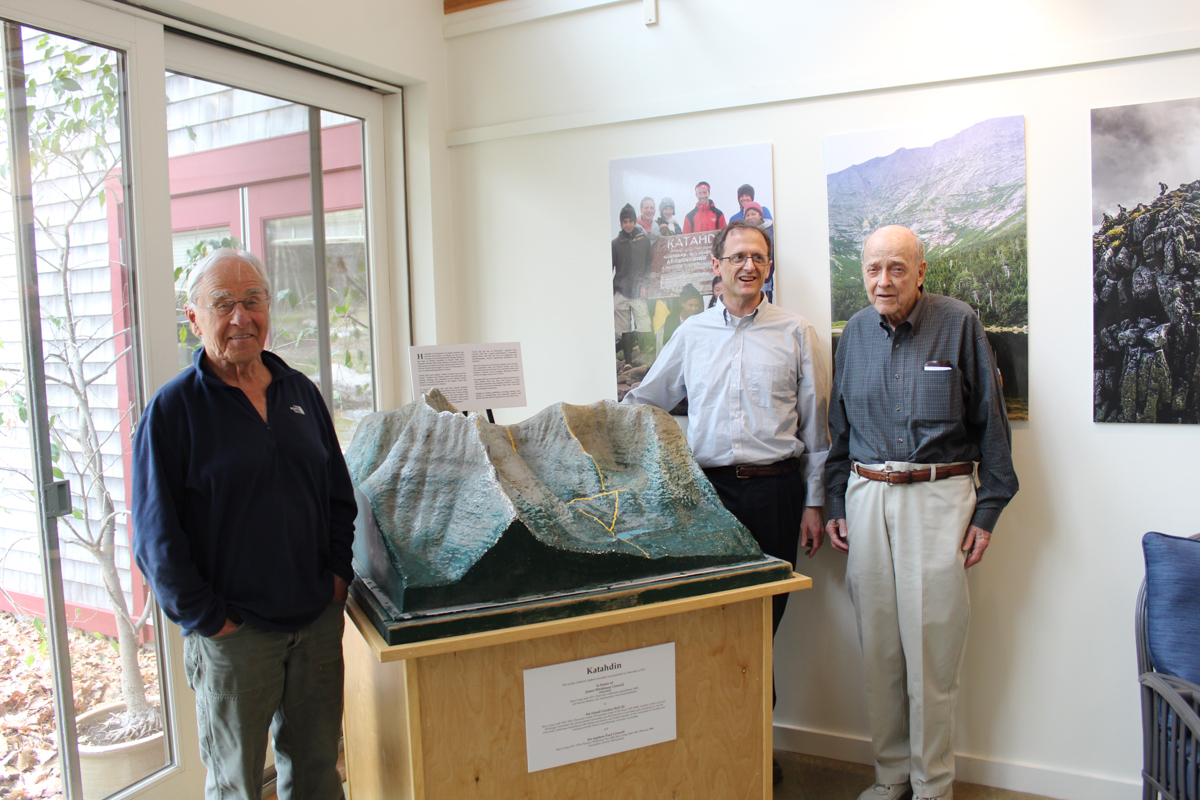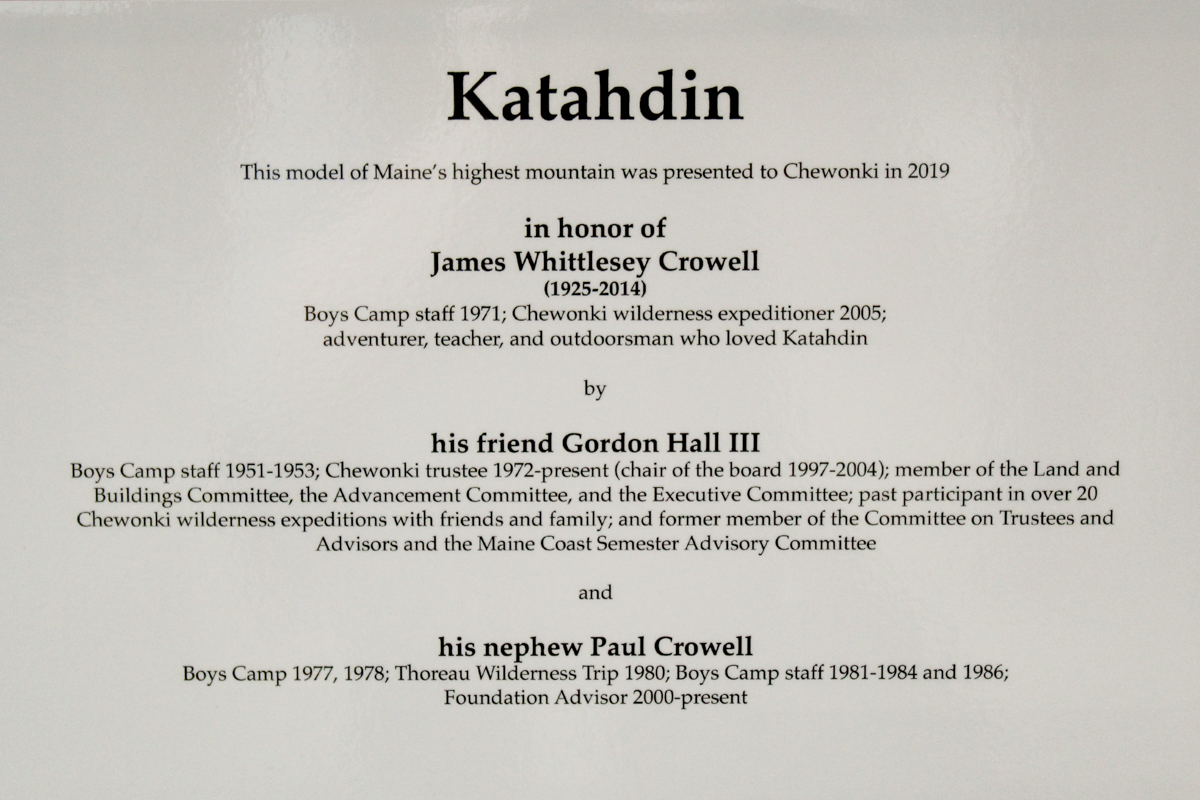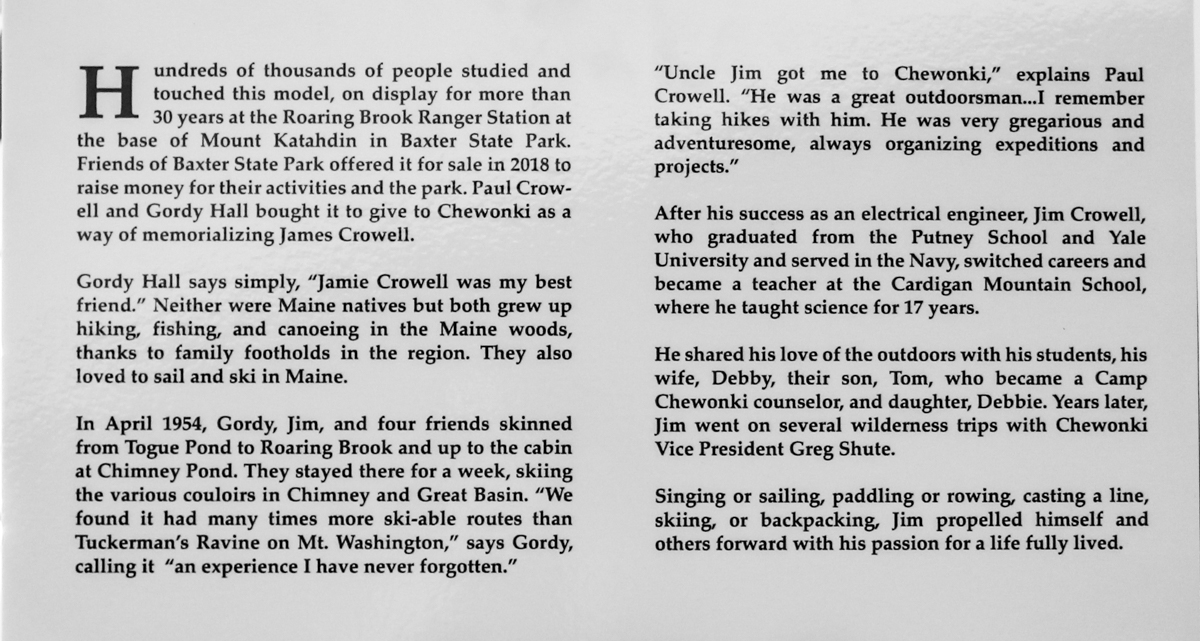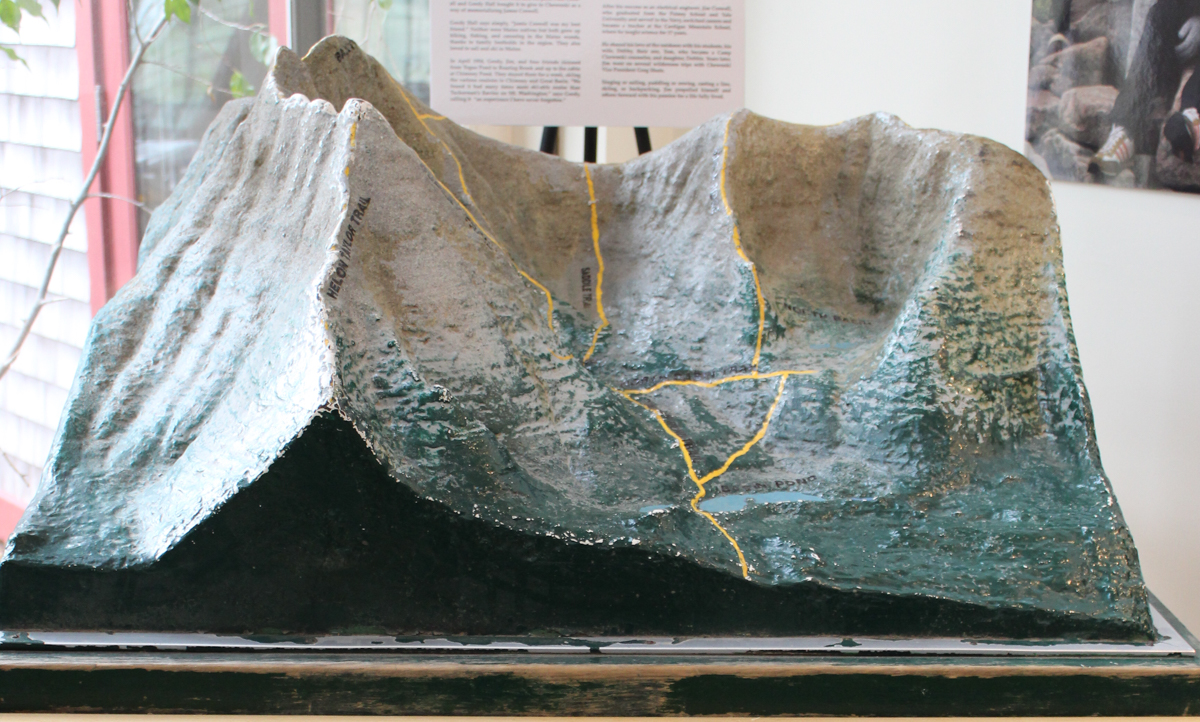“I don’t know if you are a fly fisherman,” says Bob Hamer, Maine Guide, photographer, fly fisherman, and part of the team who takes wounded veterans fly fishing in Maine every summer as part of Project Healing Waters Fly Fishing, “but fly fishing isn’t really about fishing. It’s about the moment. It’s almost meditation. Each of these guys brings his own baggage, but when their minds are on fly fishing, they’re off their problems. Even if it’s only for a few days.”
For 14 summers, Hamer and his friend Dan Legere, who owns Maine Guide Fly Shop and Guide Service in Greenville, Maine, have arranged the expedition for the nonprofit organization, which engages these military service veterans in learning about and practicing the sport. The Greenville trip was the very first expedition Healing Waters undertook, with three wounded combat soldiers from Walter Reed Army Medical Center (now Walter Reed National Military Medical Center), back in 2005.
“Dan arranges the fishing part,” explains Hamer. “I handle the logistics. And then I go along to take photographs,” so the veterans have proof that they’re not telling fish tales.
On July 17-20, seven Healing Waters participants and two counselors came to Maine from Vermont and Massachusetts. “Greenville rolls out the red carpet,” says Legere. Local restaurants provide meals. This year, Indian Hill Trading Post put on a cookout, Kelly’s Landing provided dinner on Moosehead Lake, and the Kokadjo Store served breakfast. The local American Legion Post prepared a barbecue for the last night. The group stayed at the Kokadjo Sporting Camps on First Roach Pond.
One day they fished at the Kennebec River’s East Outlet. The next day, Sarah Sindo, site manager at Chewonki’s Big Eddy Cabins and Campground on the West Branch of the Penobscot River, greeted the group bright and early. They spent the morning “fishing the eddy,” she says, had lunch on the lawn, and then boarded drift boats to fish as they floated down to Salmon Deadwater.
“They are always such a great group,” says Sindo. “Always in great spirits, excited to be fishing on the river…Photo time is interesting because there is always a jokester in the group.”
This year, luck was with them. “They all caught fish during the day on dry flies,” Sindo says.
Legere and Hamer created the very first Healing Waters Fly Fishing expedition–the trip to Maine–after bumping into sportsman Ed Nicholson at an outdoors show in Washington, D.C. Legere had guided Nicholson in Maine, and he got excited when Nicholson told him about the organization he was founding. “He had the idea that learning to tie a fly and cast could help in wounded veterans’ rehabilitation,” recalls Legere. “It would develop hand/eye coordination and get them out of rehab”–and into the peace of the wilderness.
Healing Waters has grown to be a nationwide program with more than 200 chapters rooted in military hospitals, Veterans Affairs medical centers and clinics, and Warrior Transition Units. Summer fishing days are just one part of the program; during the rest of the year, the veterans who have chosen to participate learn to tie flies and build rods with staff from Trout Unlimited, a fly fishing, and natural resource conservation organization.
Like Sindo, Legere and Hamer say the Healing Waters trip is a special part of summer, and they are quick to point out that it wouldn’t be possible without the generosity of local people. “Everything is free for the vets,” says Hamer. “It’s all donated.” “The veterans are always amazed and so appreciative of the generosity of the Greenville people,” Legere notes. “Everyone has such a wonderful time.”
All Photos courtesy of Bob Hamer and Healing Waters Fly Fishing.
Learn more about Big Eddy Campground and Cabins


